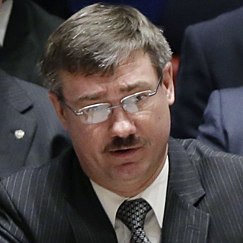(ETH Zürich) For many decades, Soviet and Russian propagandists put a premium on “controlling the message.” With the ascension of Vladimir Putin, however, we’ve seen a qualitatively different approach to information warfare (IW). As Deborah Yarsike Ball sees it, instead of trafficking in petty disinformation, forgeries, leaks, etc., Russian IW now attempts to reinvent reality and create “mass hallucinations” that translate into political action.
– – – – –
Russia’s use of information warfare to defeat its adversaries has a long history. Lenin was, of course, the master at employing propaganda and agitation (agitprop) to achieve his revolutionary goals (even creating a formal Department for Agitation and Propaganda). In the 1970s and 1980s, KGB agents who had defected to the United States revealed that “espionage was a minor consideration of Russian intelligence. Their focus was controlling the message and it often happened through influencing media and political movements in freer societies.” During the 1990s, after the collapse of the Soviet Union, Russia continued to conduct information warfare, albeit with fewer resources. The ascension of Vladimir Putin heralded a qualitatively different approach to information warfare. As Peter Pomeranstev asserts, “the new Russia doesn’t just deal in the petty disinformation, forgeries, lies, leaks, and cyber-sabotage usually associated with information warfare. It reinvents reality, creating mass hallucinations that then translate into political action.” In short, Putin has engaged in “the most amazing information warfare blitzkrieg we have ever seen in the history of information warfare.” Whereas previously information warfare was an adjunct to Russian statecraft, today it is the regime’s governing modus operandi. […]
Read More © ETH Zürich/NATO Defense College Research Paper No. 136, February 2017










